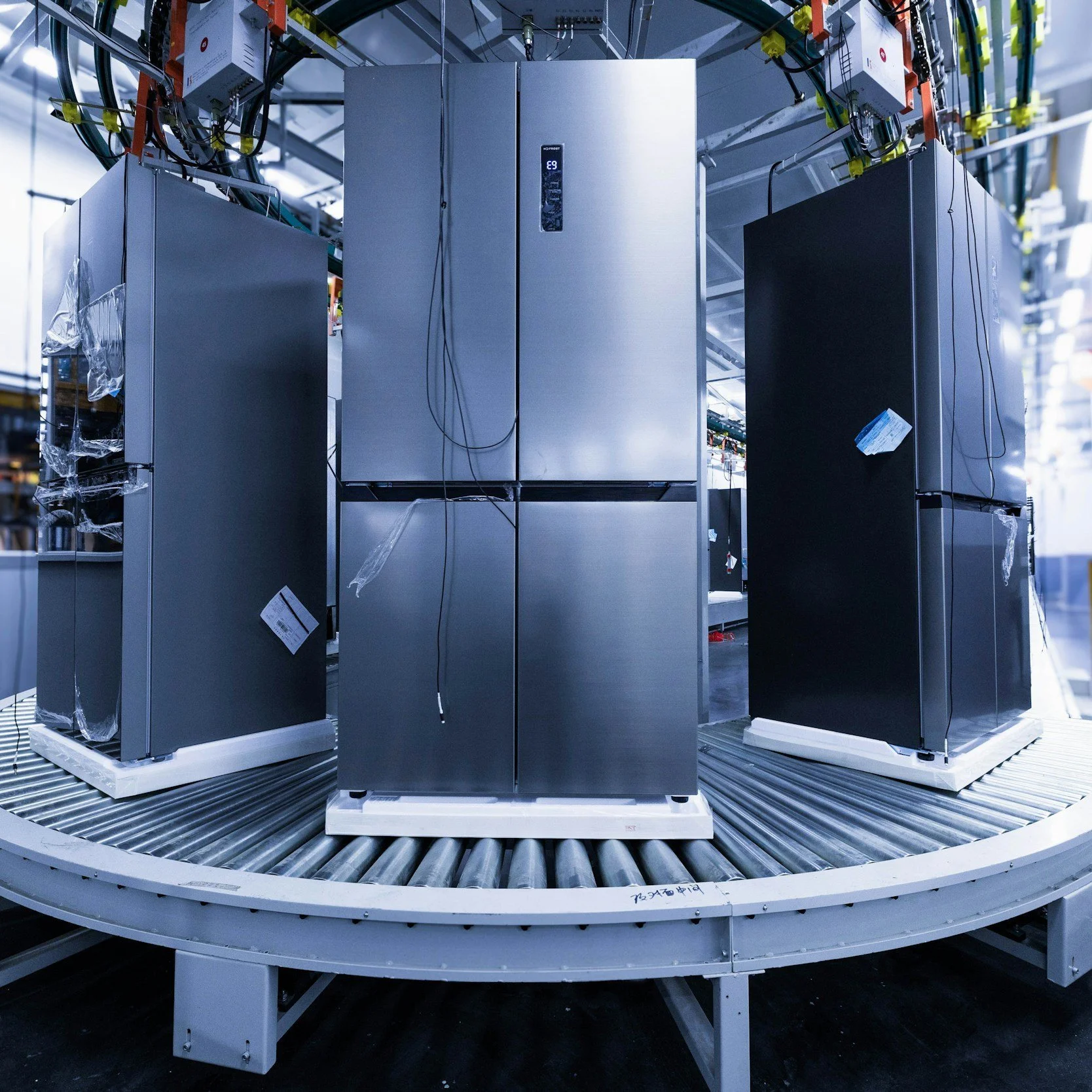Things to Consider When Looking for a New Fridge
A refrigerator is a long-term investment and a vital appliance that keeps food fresh and safe.
Choosing a new refrigerator is an essential decision for any household or business. A refrigerator is a long-term investment and a vital appliance that keeps food fresh and safe. With various models, features, and energy efficiency options, selecting the right fridge requires thoughtful consideration. Consulting with an appliance expert can provide valuable guidance during the decision-making process.
Size and Capacity
The size and capacity of a refrigerator are among the most critical factors to consider. Measuring the available space in the kitchen is essential to guarantee the appliance fits appropriately. Accounting for clearance around the sides, top, and back allows adequate ventilation and smooth operation.
The refrigerator's capacity should match the household's needs. Families or individuals who often cook at home may need more storage space, while smaller households or those who dine out often may prefer a compact model. Thinking about storage habits and future needs can help select the right capacity.
Style and Configuration
Refrigerators are available in different styles and configurations, each with unique benefits. Popular options include top-freezer, bottom-freezer, side-by-side, and French door models. Top-freezer refrigerators are often more affordable and energy-efficient, while bottom-freezer models make accessing fresh foods more convenient.
Side-by-side refrigerators balance freezer and refrigerator space, with vertical compartments for each. French door models combine the benefits of bottom-freezer and side-by-side designs, often with additional features like flexible storage and dual cooling systems. Choosing a style that complements the kitchen layout and personal preferences enhances convenience and aesthetics.
Energy Efficiency
Energy-efficient refrigerators help reduce utility costs and environmental impact. Looking for refrigerators with an ENERGY STAR rating effectively identifies appliances designed for optimal energy use. Features like LED lighting, efficient compressors, and advanced insulation reduce energy consumption.
Considering energy efficiency also includes examining the refrigerator's size, as larger models typically consume more energy. Balancing energy efficiency with storage needs helps achieve both functionality and cost savings.
Special Features
Modern refrigerators often have various unique features to enhance convenience and functionality. Adjustable shelving, temperature-controlled compartments, and humidity-control drawers allow for better organization and food preservation. Some models include built-in water and ice dispensers, door-in-door storage, or smart technology enabling remote smartphone monitoring and control.
Assessing which features align with daily habits and needs helps narrow down options. While advanced features add convenience, evaluating whether they justify the additional cost is important.
Material and Finish
The material and finish of a refrigerator impact both its appearance and durability. Stainless steel is a favorite due to its sleek, modern look and resistance to stains and corrosion. Smudge-proof finishes offer an added advantage for households with young children, as they are easier to clean.
Other finishes, such as black, white, or custom panel-ready designs, allow for greater flexibility in matching kitchen decor. Selecting a finish that complements the overall design creates a cohesive and appealing look.
Noise Levels
Refrigerators with quieter operation are ideal for open-concept kitchens or homes where noise levels are a concern. The decibel ratings of different models indicate their noise levels during operation. Many manufacturers design refrigerators with advanced compressors and noise-reducing technology for a quieter experience.
Budget and Warranty
Setting a budget is a useful step in narrowing down refrigerator options. Prices vary based on size, style, features, and brand reputation. While choosing the least expensive model may be tempting, considering long-term costs such as energy consumption and repair needs is equally important.
Examining the manufacturer's warranty is another crucial factor. A comprehensive warranty provides comfort by covering potential repairs or replacements. An appliance expert can help compare warranty terms and recommend models with strong reliability and support.
Maintenance and Longevity
Routine maintenance helps extend a refrigerator's lifespan and maintain its performance. Easy-to-clean shelves, accessible condenser coils, and replaceable water filters simplify upkeep. Investing in a high-quality refrigerator with a reputation for durability reduces the need for frequent repairs or replacements.
Delivery and Installation
Coordinating delivery and installation is a key part of purchasing a new refrigerator. Measuring doorways, hallways, and staircases verifies that the appliance can easily move into place. Professional installation services may include leveling the refrigerator, connecting water lines for ice makers, and testing the unit for proper operation.
Making an Informed Choice
Choosing a new refrigerator involves balancing practical needs, design preferences, and budget considerations. Evaluating size, style, energy efficiency, and special features leads to a well-informed decision. Partnering with an appliance expert offers additional insights, making selecting a new refrigerator more seamless and rewarding. A carefully chosen refrigerator meets current needs and adds value and convenience to the kitchen for years to come.
True Appliance Services offers in-home appliance repair in Maryville, TN. We use expert techniques and professional diagnostic tools to service and repair all major appliances, including refrigerators, freezers, washing machines, dryers, cooktops, ice makers, and range hoods. We also clean dryer vents. Fast, accurate service.

